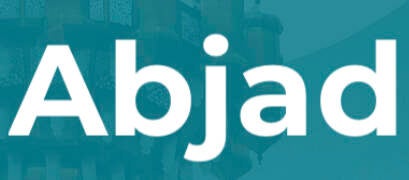Information On The Lashawan Qadash לשון קדש
Strong's H3956(LSHWN) ie; "Tongue, Language"
Strong's H6944 (QDSH) ie; "Holy, Set Apart"
Lashawan Qadash, that is to say "Language That Is Holy" "Holy set apart language"

2Sa 23:1 - Now these be the lastwords of David. David the son of Jessesaid, and the man who was raised upon high, the anointed of the God of Jacob, and the sweet psalmist of Israel, said,
2Sa 23:2 - The Spirit of the LORDspake by me, and his word was in my tongue.
2Sa 23:3 - The God of Israel said,the Rock of Israel spake to me, He that ruleth over men must be just, ruling in the fear of God.
The Word Of God Was In the לשון "tounge"(speech) of דוד "Dawad/David". The language He spoke was Holy because It was the same language that revealed The Word Of God" the same language that was used to utter unto Moses in the Flame of the bush.
:
:
לשון קדש
(Example Of Script
𐤀𐤁𐤂𐤃𐤄𐤅𐤆𐤇𐤈𐤉𐤊𐤋𐤌𐤍𐤎𐤏𐤐𐤑𐤒𐤓𐤔𐤕𐤘𐤙)
(This source IS NOT PROOF OF PRONOUNCIATION, this is proof of the ancient script)

Source:
https://www.deadseascrolls.org.il/explore-the-archive/image/B-295277
(To view description shown in the image above click this link, Paleo Leviticus is the 4th DSscroll down https://www.deadseascrolls.org.il/featured-scrolls)
Proof That The pronunciation "Yahawa'shai" and "Yahawah" known as the Lashawan Qadash Dialect Is Ligitimate Hebrew
Important Vocabulary term;

"The Arabic script (and similarly Hebrew, Aramaic, Pahlavi...) is an impure Abjad. These writing systems represent short consonants and long vowels using full letter graphemes, but generally omit short vowels and consonant length from writing. This leaves the task of inferring the missing phonemes to the reader by using context from neighbouring words and knowledge of the language structure to determine the correct pronunciation and disambiguate the meaning of the text."
(Reference; Deep Diacritization: Efficient Hierarchical Recurrence for Improved Arabic Diacritization
Badr AlKhamissi, Muhammad N. ElNokrashy, and Mohamed Gabr
The American University in Cairo (AUC)
2Microsoft Egypt Development Center (EGDC) Pp. Introduction)
(Scholastic Article; https://arxiv.org/pdf/2011.00538.pdf)
The point of this source is to point out that The pronunciation of written words within an impure abjad, (Modern hebrew) is predicated upon the readers inference of the missing phonemes, For instance The name "Yahweh" is spelled in the tetragrámmaton as Y H W H
the "a" and "e" Are not definitively expressed in the written name. Only with the adding of diacritical marks, (Inference of the masoretic scribes), does the name definitively become "Yahweh". Diacritical marks were added by a school of Masoretic scribes. Paleo Hebrew by technicality is a Pure abjad. Diacritical Marks are Not original to the most ancient hebrew text, thus by extension would make this pronounciation unoriginal.
NOTE: Both abjad and impure abjad writing systems constitute Guess work or an inference that has to be made. The difference is that one (impure abjad) consists of Vowels, Optional diacritics or both (an inference established by masoretes in this case) , And the other (abjad) consists of only consonants and NO vowels (Inference of vowel sounds are left to the interpreter)
This scholastic Source Validates The Pronunciation "Yahawah" and Debunks the possibility of the pronunciation "Yahweh" Verbatim. It also cites a school of thought presented in 19th century linguistic scholarship, which proposes the pronunciation "Yahawah" as the true pronunciation of God's name.



Make no mistake. This source provides clarity to the pronounciation Of "YHWH" in the tetragramaton. The only instance in which YHWH's name is reduced to "Yah" in translation is when we see "Y" standing alone. "YH" does not make the sound "Yah" when connected to a name, and in actuality "YH" never stands alone in the hebrew Scriptures. When observing any theophoric name in the scriptures we see "YHW" (Yah-Ha-W ) not YW (yah-wah)
(Yeho is pronounced Yahow/Yehow/Yahaw)
In english there are many was to spell one sound



Create Your Own Website With Webador